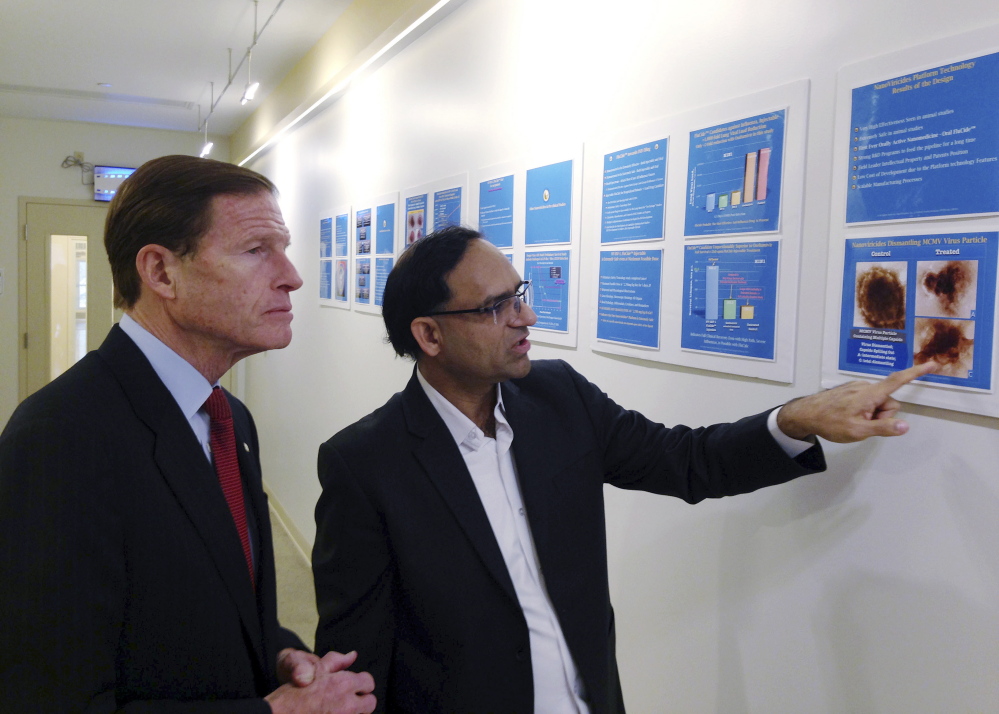SHELTON, Conn. — A company that is developing new anti-viral drugs hopes it will have a cure for Ebola, which is still in the research phase, put on the fast track for development.
NanoViricides, whose headquarters are in West Haven, opened its research and development lab in July.
The company, with a net worth of $250 million, employs more than 20 and expects to double that in the next two years.
U.S. Sen. Richard Blumenthal, D-Conn., recently toured the newly renovated plant. He’s helping the company have its research evaluated by the U.S. Army Medical Research Institute of Infectious Diseases and, once a drug is developed, to move into clinical trials on an emergency basis.
AMRIID evaluates “different approaches to cures for various kind of diseases and they focus very intently on Ebola,” Blumenthal said. “We have expedited their attention on the work being done here.”
The company is operating without government financing now, but Meeta Vyas, chief financial officer, said if the Ebola drug were successful, “we would apply for a Department of Defense grant.”
NanoViricides is developing potential cures for the flu and HIV as well as Ebola.
The flu drug is 18 months from clinical trials, said Anil Diwan, president and chairman, but if an Ebola drug looks promising it would go into trials more quickly because of the emergency in west Africa.
“Once the data from AMRIID comes out, we’ll discuss it with them and then we’ll decide the next step,” Diwan said. “It could be as early as March 15.”
According to the Centers for Disease Control and Prevention, there have been 19,340 cases in Guinea, Sierra Leone and Liberia as of Dec. 20, plus seven in Mali, a new site for the disease. There have been 7,524 confirmed deaths in those four countries, the CDC reported.
Protein Sciences of Meriden, among other companies, also is working on an Ebola vaccine.
Diwan said NanoViricides, which he launched in 1992, is researching “a completely novel new mechanism. We are defining a new class of drugs.”
If it works, it can be taken not only by people with Ebola but also by others, such as healthcare workers, to prevent contracting the disease.
Diwan described the drug’s action: “We try to replicate how the virus binds to the cell,” so that the Ebola virus is tricked into binding onto the drug instead of the living cell.
“In competition against the cell surface, our stuff wins,” Diwan said.
Send questions/comments to the editors.



Success. Please wait for the page to reload. If the page does not reload within 5 seconds, please refresh the page.
Enter your email and password to access comments.
Hi, to comment on stories you must . This profile is in addition to your subscription and website login.
Already have a commenting profile? .
Invalid username/password.
Please check your email to confirm and complete your registration.
Only subscribers are eligible to post comments. Please subscribe or login first for digital access. Here’s why.
Use the form below to reset your password. When you've submitted your account email, we will send an email with a reset code.